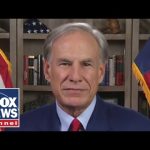In recent discussions centered on the political landscape in Texas, a notable figure has joined the conversation: a legendary playwright and director of the film “Henry Johnson.” His insights on the current state of affairs shed light on what many perceive as a theatrical performance from certain political players, particularly within the Democratic party. He draws attention to a significant observation—when the law or facts support a position, that side stands firm, but when neither is on their side, they simply pound the table. This raises a thinking point for both political allies and adversaries.
One of the major topics tackled during the conversation was courage and the willingness to engage in the fight for one’s beliefs. The playwright made a colorful comparison involving Hulk Hogan, who, despite his fears, recognized the importance of standing up for principles. This notion of courage resonates with many constituents: standing firm in the face of opposition, whether it leads to victory or defeat. It is about taking a stand on issues that matter, much like how some public figures approach their public personas, balancing seriousness with a sense of humor.
Moreover, the playwright highlighted a stark contrast between political attitudes. He noted that those on the right often show a cheerful demeanor, making their challenges seem less burdensome. In contrast, he described the left as looking as if “they ate a bad lemon,” implying that they struggle to express genuine emotions about pressing issues like crime and border control. This observation prompts reflection on the emotional undercurrents driving political sentiments and how they manifest in different political arenas.
The discussion also explored the inherent nature of human impulses in politics. The playwright pointed out that both good and evil exist within everyone. However, when faced with challenging situations, some individuals may suppress their true feelings, particularly when confronting uncomfortable truths. This idea of suppression raises questions about accountability in political positions and how it influences public perception of leaders.
As they veered into film, the focus shifted to “Henry Johnson,” a story about a man’s quest to do good, no matter the risks involved. The film depicts the vibrant journey of a character who is willing to break the law to help a friend, which opens up discussions about morality, legality, and the right to fight for justice. Audiences are encouraged to check out this movie, which explores deeper themes of loyalty, friendship, and moral dilemmas within the justice system.
In conclusion, the dialogue surrounding politics in Texas encapsulates not only the challenges faced by public officials but also highlights the human element in political discourse. With engaging characters and narratives, whether through conversation or film, the conversation about standing up for what one believes in remains central. As viewers reflect on these topics, they are reminded that politics is not only about who wins or loses; it’s about facing the good fight with courage, dignity, and perhaps a touch of humor to lighten the load along the way.




